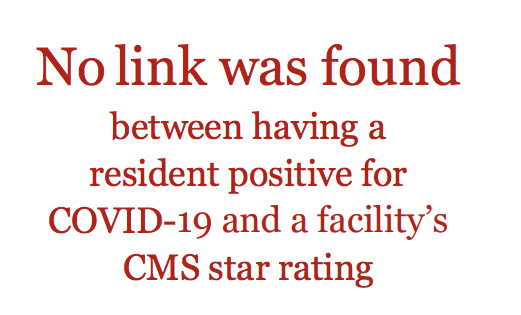
Miami's Scripps researchers find no link between nursing home residents with COVID-19 and facility quality
By Scripps Gerontology Center
 Over the last few months, U.S. nursing homes have received a lot of attention as stories of their high rates of COVID-19 have made local and national news. Many people assume that virus rates are high in nursing homes because of poor quality or bad management.
Over the last few months, U.S. nursing homes have received a lot of attention as stories of their high rates of COVID-19 have made local and national news. Many people assume that virus rates are high in nursing homes because of poor quality or bad management.
However, it may not be that simple.
A new study by Miami University’s Scripps Gerontology Center found no link between nursing home residents with COVID-19 and facility quality.
In recently published research, John Bowblis, professor of economics and Scripps Research Fellow, and Robert Applebaum, professor of gerontology and sociology and director of the Ohio Long-Term Care Research Project, examined resident cases of COVID-19 in Ohio nursing homes and whether the presence of COVID-19 among residents is associated with facility quality.
Using weekly reports released by the Ohio Department of Health, Bowblis and Applebaum found that as of June 3, 2020, 28% of Ohio’s nursing homes had at least one resident with COVID-19. They also identified facilities with high caseloads of COVID-19. Then, they examined those facilities’ quality ratings as reported through the Centers for Medicare and Medicaid Services (CMS) Nursing Home Compare website, which assigns a star rating to reflect facility quality.
The study found no link between having a resident positive for COVID-19 and a facility’s CMS star rating. And, even for facilities with a high proportion of residents with COVID-19, the study did not find a link to quality.
 Bowblis summarized, “These findings show that there is no difference in the probability of having a high caseload of residents with COVID-19 based on the facility quality star rating. Therefore, the simple notion that any nursing home that has had a resident with COVID-19, or even a high number of residents with the virus, is not adequately protecting their residents and staff, is not justified by these study results.”
Bowblis summarized, “These findings show that there is no difference in the probability of having a high caseload of residents with COVID-19 based on the facility quality star rating. Therefore, the simple notion that any nursing home that has had a resident with COVID-19, or even a high number of residents with the virus, is not adequately protecting their residents and staff, is not justified by these study results.”
The researchers cautioned that as long as we have COVID-19, there is no vaccine, and access to rapid and universal testing remains limited, nursing home residents and the individuals who care for them will remain the most vulnerable members of society.
The full research brief is available on the Scripps Gerontology Center's website.
